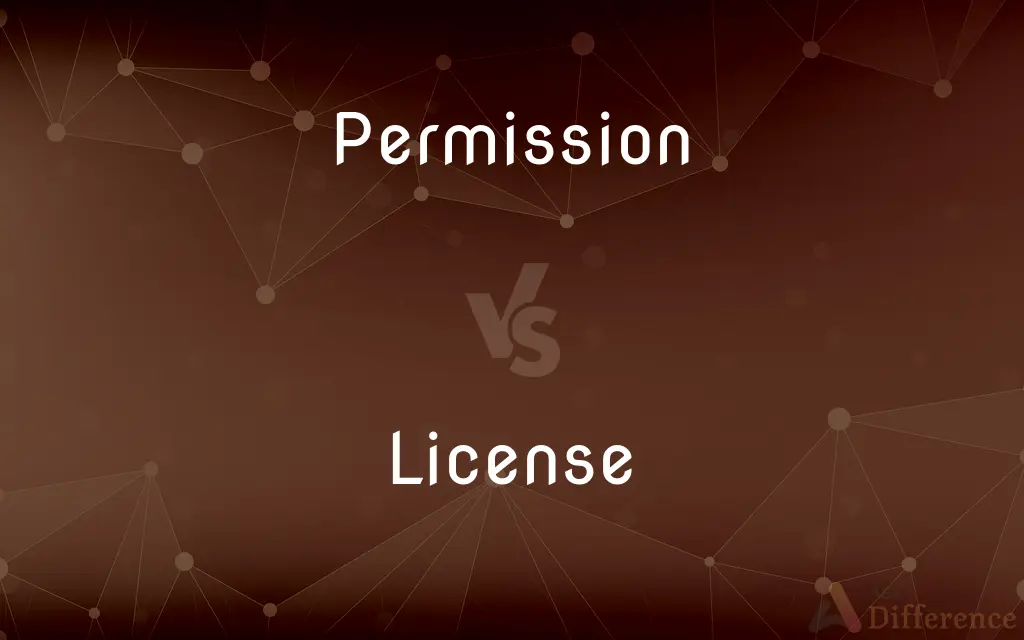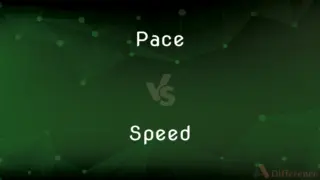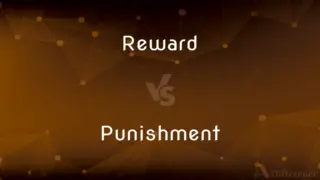Permission vs. License — What's the Difference?
By Fiza Rafique & Urooj Arif — Updated on March 10, 2024
Permission is the consent to do something, often informal and based on personal or situational authority, while a license is a formal permission, usually documented, granted by an authority to engage in a specific activity.

Difference Between Permission and License
Table of Contents
ADVERTISEMENT
Key Differences
Permission involves granting consent or approval for someone to do something. It's a broad concept that can apply in various contexts, from personal interactions to institutional settings. Permissions can be informal, like a parent allowing a child to go out with friends, or more formal, such as an employer authorizing an employee to access certain company resources. Whereas, a license is a specific form of permission that is usually formal, legal, and documented. Licenses are granted by authorities or organizations and often involve a process of application and approval, such as driving licenses or business operating licenses.
In terms of scope, permission can be temporary and revocable based on the discretion of the grantor and the specific circumstances. It doesn't necessarily involve a legal agreement and can be granted by anyone with the authority or right to do so. On the other hand, a license typically has a defined duration, conditions, and may involve a legal contract. It grants the licensee the right to perform activities that would otherwise be restricted or illegal.
The criteria for granting permission can be highly variable, depending on the relationship between the parties involved and the nature of the request. It may or may not involve a formal process. Conversely, obtaining a license usually requires meeting specific criteria set by the issuing authority, which may include passing tests, paying fees, and adhering to regulations.
Permissions can often be understood as a matter of courtesy or respect, especially in social or familial contexts. For instance, asking permission to leave the table during a family dinner respects the family's norms. Licenses, however, are rooted in regulatory, safety, and legal frameworks, ensuring that individuals or entities meet certain standards to protect public interests, like health and safety in the case of professional licenses.
While both permissions and licenses are forms of consent that enable individuals to perform certain actions, the key difference lies in their formalities, the authority granting them, and their intended purposes and conditions. Understanding these differences helps clarify the level of authority and formality required in various situations.
ADVERTISEMENT
Comparison Chart
Formality
Can be informal or formal
Formal, often documented
Granted By
Any authority figure or individual
Specific authorities or organizations
Purpose
General consent for actions
Permission for specific, regulated activities
Requirements
Varies, often based on personal discretion
Specific criteria, may include tests or fees
Legal Framework
May not involve a legal framework
Involves legal agreements and regulations
Compare with Definitions
Permission
Consent to do something.
She asked her parents for permission to attend the late-night concert.
License
Permit issued by authorities.
Businesses require a license to sell alcohol.
Permission
Sanction by someone in charge.
The teacher gave the students permission to leave early.
License
Formal authorization for a specific activity.
She obtained a license to practice law in her state.
Permission
Approval from an authority figure.
The employee sought permission from his manager to work remotely.
License
Certification indicating qualification.
He earned his pilot's license after months of training.
Permission
Agreement to proceed with an activity.
He needed his friend's permission to borrow the car.
License
Legal right to perform regulated actions.
Driving without a license is illegal.
Permission
Authorization for certain actions.
Permission was granted to access the restricted files.
License
Documented permission from a regulatory body.
The restaurant needed a health license to operate.
Permission
The action of officially allowing someone to do a particular thing; consent or authorization
They had entered the country without permission
He received permission to go to Brussels
License
A license (American English) or licence (British English) is an official permission or permit to do, use, or own something (as well as the document of that permission or permit).A license is granted by a party to another party as an element of an agreement between those parties. In the case of a license issued by a government, the license is obtained by applying for it.
Permission
The act of permitting, especially in giving formal consent; authorization
Do they have permission to leave?.
License
Official or legal permission to engage in a regulated activity
"He believed that the subcommittee gave him license to interrogate anyone about any possible links to communism" (Donald A. Ritchie).
Permission
An authorization to do something, as to quote from a book under copyright.
License
A document, card, plate, or tag that is issued as proof of official or legal permission
A driver's license.
Permission
Authorisation; consent (especially formal consent from someone in authority)
Sire, do I have your permission to execute this traitor?
License
A contract allowing someone to use a proprietary product or service
Has a site license for that software.
Permission
The act of permitting.
License
Freedom of action or permission to act
"Doctors labeled many of the organs of the immune system 'functionless' ... giving surgeons license to remove them with abandon" (Andrew Weil).
Permission
(computing) Flags or access control lists pertaining to a file that dictate who can access it, and how.
I used the "chmod" command to change the file's permission.
License
Poetic license.
Permission
(transitive) To grant or obtain authorization for.
License
Lack of due restraint; excessive freedom
"It is important to preserve freedom only for people who are willing to practice self-denial, for otherwise freedom degenerates into license and irresponsibility" (Milton Friedman).
Permission
The act of permitting or allowing; formal consent; authorization; leave; license or liberty granted.
High permission of all-ruling Heaven.
You have given me your permission for this address.
License
An excuse or justification to do something wrong
People who see low-fat labels as a license to eat larger amounts.
Permission
Approval to do something;
He asked permission to leave
License
To give or yield permission to or for
"Deep down I wondered what licensed me to speak" (Jan Clausen).
Permission
The act of giving a formal (usually written) authorization
License
To grant a license to or for; authorize.
License
A legal document giving official permission to do something; a permit.
License
The legal terms under which a person is allowed to use a product, especially software.
License
Freedom to deviate deliberately from normally applicable rules or practices (especially in behaviour or speech).
License
Excessive freedom; lack of due restraint.
License
To authorize officially.
I am licensed to practice law in this state.
License
(transitive) (applied to a piece of intellectual property)
License
To give formal authorization to use.
It was decided to license Wikipedia under the GFDL.
License
To acquire authorization to use, usually in exchange for compensation.
The filmmakers licensed several iconic 80's songs for the soundtrack.
License
(transitive) To give permission or freedom to; accept.
License
To permit (as grammatically correct).
No English adverbs have mandatory complements, and most don't even license optional ones.
License
Authority or liberty given to do or forbear any act; especially, a formal permission from the proper authorities to perform certain acts or to carry on a certain business, which without such permission would be illegal; a grant of permission; as, a license to preach, to practice medicine, to sell gunpowder or intoxicating liquors.
To have a license and a leave at London to dwell.
License
The document granting such permission.
License
Excess of liberty; freedom abused, or used in contempt of law or decorum; disregard of law or propriety.
License they mean when they cry liberty.
License
That deviation from strict fact, form, or rule, in which an artist or writer indulges, assuming that it will be permitted for the sake of the advantage or effect gained; as, poetic license; grammatical license, etc.
License
To permit or authorize by license; to give license to; as, to license a man to preach.
License
A legal document giving official permission to do something
License
Freedom to deviate deliberately from normally applicable rules or practices (especially in behavior or speech)
License
Excessive freedom; lack of due restraint;
When liberty becomes license dictatorship is near
The intolerable license with which the newspapers break...the rules of decorum
License
The act of giving a formal (usually written) authorization
License
Authorize officially;
I am licensed to practice law in this state
Common Curiosities
What is a license?
A license is a formal permission, often involving a legal document, granted by an authority to engage in a specific, regulated activity.
Is a license always required for professional activities?
Many professional activities require licenses to ensure individuals meet certain standards, though this varies by profession and jurisdiction.
Who can grant permission?
Permission can be granted by anyone in a position of authority or control over the matter in question, ranging from personal to professional contexts.
Who issues licenses?
Licenses are issued by official bodies or organizations with the legal authority to regulate certain activities.
What is permission?
Permission is the approval or consent given by one party to another to perform a certain action.
Why is permission important in daily interactions?
Permission is crucial for respecting personal boundaries, maintaining trust, and ensuring mutual respect in various relationships.
Can permission be considered a form of license?
While permission can be broad and encompass many forms of consent, a license is a specific, formal type of permission.
Do all licenses involve fees?
Many licenses require payment of fees, though the amount and nature of these fees can vary widely.
Can a license be temporary?
Yes, many licenses are issued for a specific period and may need renewal.
Is asking for permission legally binding?
Asking for and granting permission is not typically legally binding unless it's part of a formal agreement or contract.
How do digital permissions work?
Digital permissions control access to resources, data, or actions within software and technology systems, often requiring user consent or administrative approval.
Can permission be revoked?
Yes, permission can be revoked by the grantor depending on the circumstances and the nature of the permission given.
Can a license be revoked?
Yes, licenses can be revoked or suspended by the issuing authority if the licensee fails to comply with the terms or regulations.
How is a license different from a certificate?
A license grants permission to perform specific activities, often regulated by law, while a certificate typically acknowledges completion of training or education.
What happens if you operate without a required license?
Operating without a required license can result in legal penalties, including fines and cessation of operations.
Share Your Discovery

Previous Comparison
Pace vs. Speed
Next Comparison
Reward vs. PunishmentAuthor Spotlight
Written by
Fiza RafiqueFiza Rafique is a skilled content writer at AskDifference.com, where she meticulously refines and enhances written pieces. Drawing from her vast editorial expertise, Fiza ensures clarity, accuracy, and precision in every article. Passionate about language, she continually seeks to elevate the quality of content for readers worldwide.
Co-written by
Urooj ArifUrooj is a skilled content writer at Ask Difference, known for her exceptional ability to simplify complex topics into engaging and informative content. With a passion for research and a flair for clear, concise writing, she consistently delivers articles that resonate with our diverse audience.














































